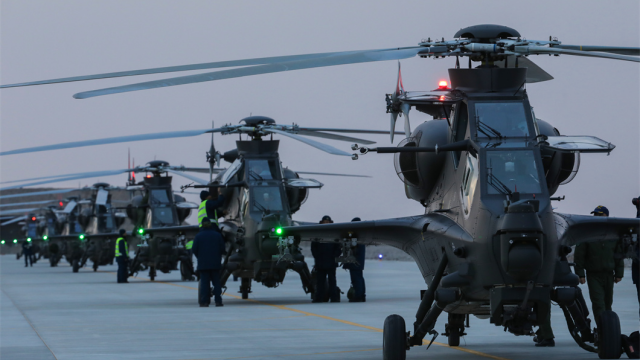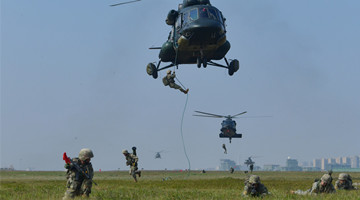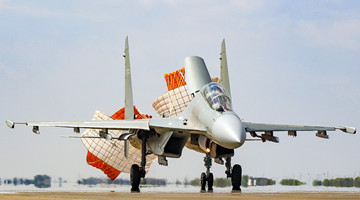By Xu Jiahu
The US and Republic of Korea (ROK) have confirmed on March 2 that they will no longer hold the annual large-scale joint military exercises and will replace them with smaller-scale exercises. What are probable implications of the announcement? What the future of Korean Peninsula will be?
Release positive signal
The US and the ROK announced that two military exercises will be scaled back and done on a small-scale level, or even include virtual training.
Chinese military observer Du Wenlong believes that the US and the ROK's decision to stop large-scale military exercises represent a positive signal, which is conducive to the development of the situation on the Korean Peninsula in a good direction.
Du said that the US-ROK military exercise dropped two gradients. First is the name change. Exercise names including "Key Resolve" and "Foal Eagle" sounded provocative and would be replaced with neutral names such as serial numbers like "19-1" and "19-2" in the future. It is even probably to use Korean names.
The present gradient is to cancel large-scale joint exercises. The suspension or cancellation of the large-scale joint exercises that have targeted Democratic People's Republic of Korea (DPRK) will send a positive signal. . Hopefully the plans for subversion and full-scale attack against the DPRK may become history.
The DPRK destroyed its Punggye-ri Nuclear Test Site and the Yongbyon nuclear reactor. The suspension of large-scale military exercises will be a proof of good intension by the US and the ROK in comparison with the previous request that the US and the ROK will not end the sanctions, stop military exercises, and withdraw the military power from the Korean Peninsula, until the DPRK completely abandons its nuclear weapons and programs , said Du.
From this point of view, the confrontational actions of the two sides in the future including the multiple levels of confrontation in the air especially across the 38th parallel and the coastline, may be reduced. Moreover, if this kind of large-scale, targeted, and highly provocative exercises are stopped, it will give a positive effect on the peace talks between the ROK and the DPRK and the multi-party peace talks within the region, said Du.
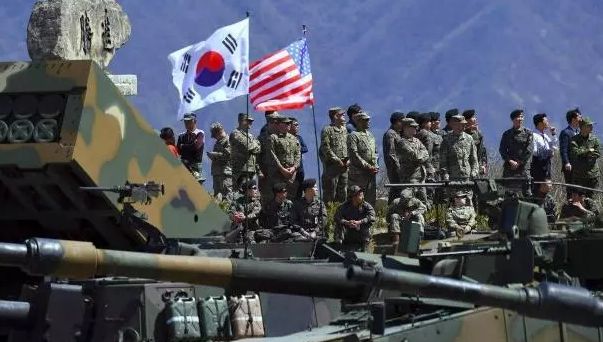
Political rather than military signal
Du Wenlong said that the signal given by the US and the ROK is only a political signal, rather than a military one. Because the scale of exercise is related with the size of mobilizing forces and the covering area of exercise. Hence, small-scale exercise can easily transform into a bigger and targeted one within a short period of time.
Predicated on current positive political signals, the level of the US-ROK military exercises targets might be lowed, or in other words, the targets of the exercises are indefinite. The current suspension is only a kind of technical leverage rather than strategy. It is not equivalent to the complete abolition of relevant exercises and the total withdrawal of the US troops from the ROK.
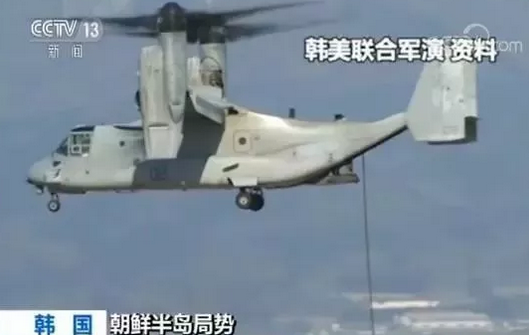
A tortuous path to the denuclearization of the Korean Peninsula
Du Wenlong believes that the future development of the situation on the Korean Peninsula will be tortuous. In case of progress of the denuclearization negotiations reaches a new round of stalemate, the situation may return to tension again.
The denuclearization and the signing of various treaties face many issues. In particular, the concept of denuclearization is complicated involving various possible considerations. What’s the ultimate goal? The denuclearization of the DPRK, the Korean Peninsula, or the neighboring region? What should be eliminated? The nuclear capabilities, or the nuclear weapons? Since there has not been an agreement on such issues, it would be difficult to set specific goals in the future, according to Du.
Therefore, the situation on the Korean Peninsula will revolve around the concept and scope of denuclearization, the elimination of nuclear weapons and the lifting of military threats, and especially the slowdown in economic sanctions, said Du.
Currently, US military deployment around the Korean Peninsula has not been completely eliminated. Even if the major US weapons and personnel are withdrawn from the ROK, the US can still form new capabilities on the peninsula in a short time relying on its bases in Japan and various strategic weapons in Guam.
Therefore, the US took a step back and gathered strength and assembly capacity in a safe area. US forces will soon be able to return to the region and large-scale military exercises may follow in the future once any emergency occurs, said Du.
Du said that the attitudes of both sides are only an optimistic statement at present. Whether such good intention can be materialized completely depends on the strategic interaction of many parties.
The article was published on CNR (CHINA NATIONAL RADIO) on Mar. 5, 2019. It is translated from Chinese into English and edited by the China Military online.







